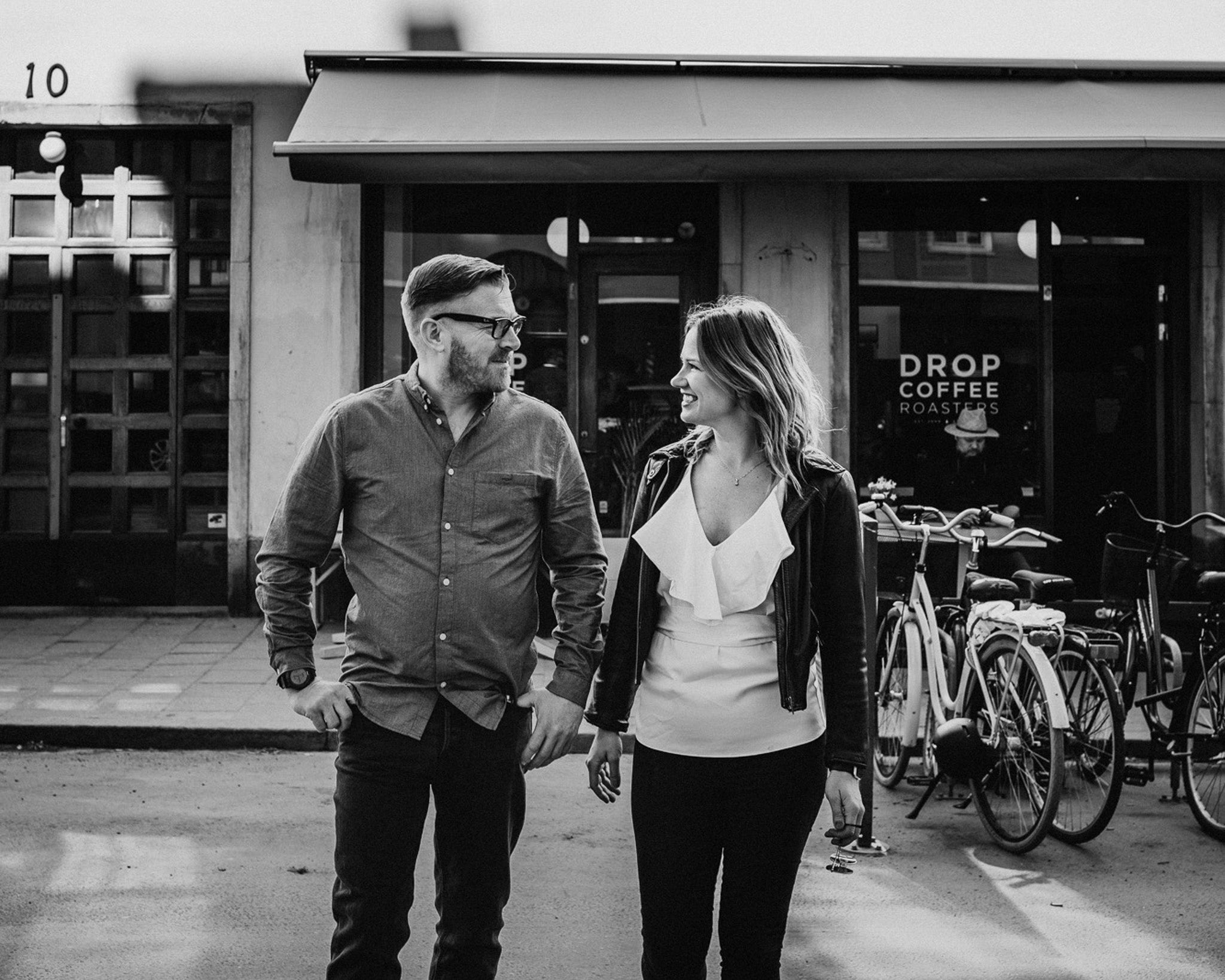The scissor experiment - Alasitas Gesha
There are many experiments in processing specialty coffee at the moment. This coffee is lactic processed, which is highly interesting. But there is another experiment, underneath this, that excites us even more; how the coffee has been removed from the branch of the coffee plant and harvested without breaking the coffee cherries structure. Instead of picking the coffee by hand, this method involves cutting them off the branch, cherry by cherry, using scissors. We are not saying this is the direction to go, it is purely an experiment on how to increase the highest level of coffee even more.
You can buy the Scissor Experiment Gesha here as long as it is available.
With all humbleness for the cost to produce a coffee harvested in the way, we are beyond excited to see how this gentleness improves the coffee quality.
In general, there is a main harvest once per month in coffee-producing countries. In Bolivia, it is common to bring in season workers that help to pick the coffee by hand. One of the biggest costs during harvest is, and should be the workers' salary. On top of that, the producer is often organizing and paying for transport and insurance. To produce quality, workers are paid to pick only the right level of ripeness of the coffee cherry, not just based on volume. This takes a lot more time (hence cost) than to use processes such as in the commercial market, where the coffee is either stripped from the branch in one go or shaken from the tree using machinery.

When the coffee cherry is picked from its stem, it creates a break which will cause that cherry to oxidize as well as to leak mucilage surrounding the beans within the cherry. Much like when you eat grapes and remove them from their stem, you would not prefer them so much if they had previously had hours to dry out and lose some of their sweet juice, right?
As the cherries are picked, it will be several hours before it is at the processing station. In theory, this will not only make the coffee lose some liquid of mucilage that is a sweetness in the coffee, but that gradual leakage gathering at the bottom of the bag/sack you are packing the coffee into, means a very uncontrolled process of the bacterias surrounding the freshly harvested coffee. On top of that, the coffee cherry will start to dry out and oxidate. So in theory, it would be more controlled to cut the end of the branch of which the coffee cherry stems, to keep the cherry whole and as one. And this is exactly what Pedro, Daniela, and Pedro Pablo have instructed the pickers to do on the Gesha grown at Alasitas. As an experiment.

To prevent the coffee cherries from being squeezed as they are harvested, the Roudriguez are using buckets for picking the coffee. This has airflow from all sides to the coffee cherry and is also being washed down by clean water to ensure the coffee is clean.

Zoom in to see the green twigs left on the coffee cherries
For sure this harvesting method is a quality increase. Will it make a difference that we can notice in the taste? Let’s see.
What we do know is that it is a lot more expensive to cut cherry by cherry using scissors. With the coffee prices that are on the market today, the math does not do. For this coffee, we have paid 35 USD per pound, which gives a landing price of 80.74 USD per kilo, before we are roasting 12% away.
The Alasitas Gesha, we buy every year and love its complex yet delicate and clean taste profile. Besides being a Scissor experiment, it is Lactic fermented before it is washed.
The coffee is limited to 145 bags of 125g. They will all be marked up with numbers. There is no reservation, first come first serve. Order your coffee at home now by following this link, or place your wholesale order to info@dropcoffee.se . The coffee will be roasted Thursday 10th and Monday 14th.
/Joanna Alm,
Managing Director
Drop Coffee

